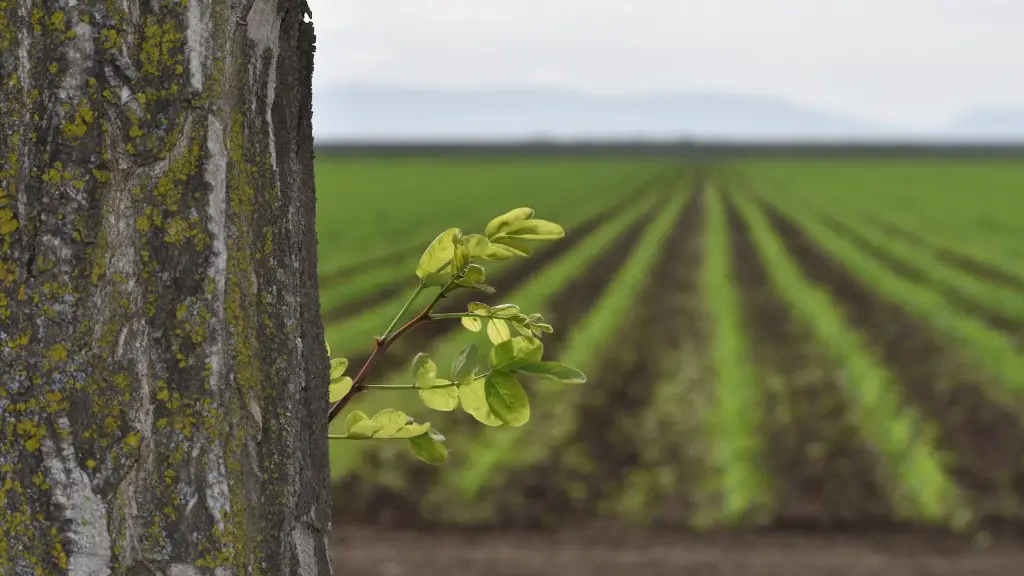Crop yield is an important factor in agriculture, as it defines the amount of produce from a particular crop. Crop yield varies from season to season and also depends upon multiple factors such as climate, soil quality, water availability and type of crop. The higher the crop yield, the more beneficial it is for the local communities and overall economy.
Crop yield has a direct correlation to global food security, as the better the yield, the more food is available for the population. It also helps lower the cost of staple foods and boosts the income of farmers. Furthermore, higher crop yields enable farmers to access better quality seeds and other agricultural inputs, which can further improve their productivity and yields.
Crop yield estimation can be enhanced by several measures. Improved land management, such as ensuring adequate soil fertility and water availability, is an essential factor in increasing crop yields. Planting crops in the right environment and at the right time is also important in terms of yield. Soil conservation techniques such as protection from soil erosion, proper use of fertilizers and mulching help preserve soil fertility, which in turn increases crop yields.
Crop rotation is a useful practice for improving yield. Rotating crops in a field enables the use of different crop varieties, which have different combinations of traits. Such combination helps to keep the yield stable and to get a better harvest. Furthermore, rotation of crops can help control weeds, pests and diseases.
Crop yield can also be improved by using appropriate crop varieties and hybrids. Appropriate irrigation and the use of modern agricultural technoloy, such as precision farming and cover crops, are also useful in increasing yields. Furthermore, adequate use of inputs, such as fertilizers, pesticides and weedicides, can help maximize yields.
It is essential to improve crop yields in order to ensure food security and economic development. Thus, farmers and other stakeholders should be motivated to adopt appropriate agricultural technologies and practices to ensure higher yields. It is also important to conduct extensive research on improving crop yields in order to develop better and more efficient crop varieties.
Improved Land Management
Improved land management is a key factor in increasing yield of crops. By taking measures such as the ones mentioned above, farmers are able to get the most out of their land and achieve high yields. Such measures should include preserving soil fertility and controlling soil erosion, using appropriate crop varieties and hybrids, planting crops in the right environment and at the right time, and using cover crops and precision farming technologies.
Crop Rotation
Crop rotation is another important practice for improving crop yield and has been used since ancient times. It helps to keep the yield stable, prevents soil depletion, and enables farmers to access a wider range of crop varieties for planting. With crop rotation, farmers can use different crop varieties which have different combinations of traits, which helps to maximize yield and quality of crops.
Irrigation
Adequate use of irrigation is another factor in improving crop yield, as it ensures proper water supply to the crops. Proper irrigation techniques, such as drip and sprinkler methods, should be employed to ensure that the water reaches the roots of the plants and not evaporate from the surface. An appropriate irrigation system should also be set up to ensure that the soil moisture content is sufficient for better yields.
Modern Agricultural Technologies
The use of modern agricultural technologies is another way of improving crop yields. Technologies such as GPS and remote sensing are used by farmers to accurately monitor their crops and anticipate the need for inputs such as fertilizers, pesticides and weedicides. These technologies can also help farmers to increase their productivity and predict weather patterns, thereby ensuring better crop yields.
Inputs
Inputs such as fertilizers, pesticides and weedicides should be used in adequate amounts in order to maximize yields. The use of fertilizers in proportion to the soil type can help to improve soil fertility, which in turns leads to better yields. Similarly, the use of pesticides and weedicides should be done in a judicious manner, as excessive use of these substances can have a negative impact on yield. The use of organic farming methods and natural pest control methods is also beneficial in increasing yields.
Research
Extensive research needs to be carried out by agricultural scientists to develop better and more efficient crop varieties and hybrids that can increase yields. Such research is invaluable in understanding the factors that influence crop yield and in developing strategies to improve yields. It is also important to train farmers in the use of modern agricultural technologies and best practices in order to ensure better yields.



